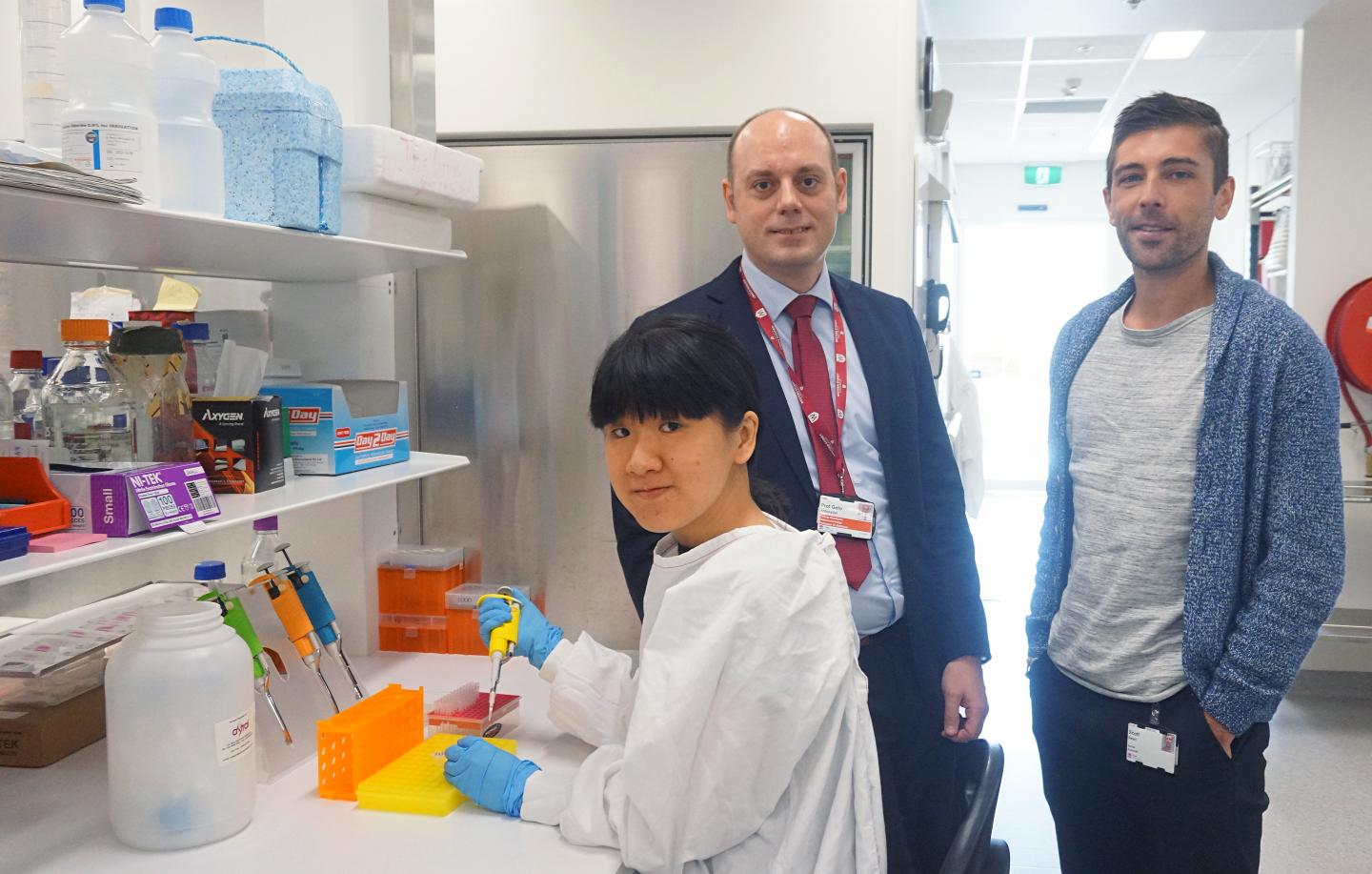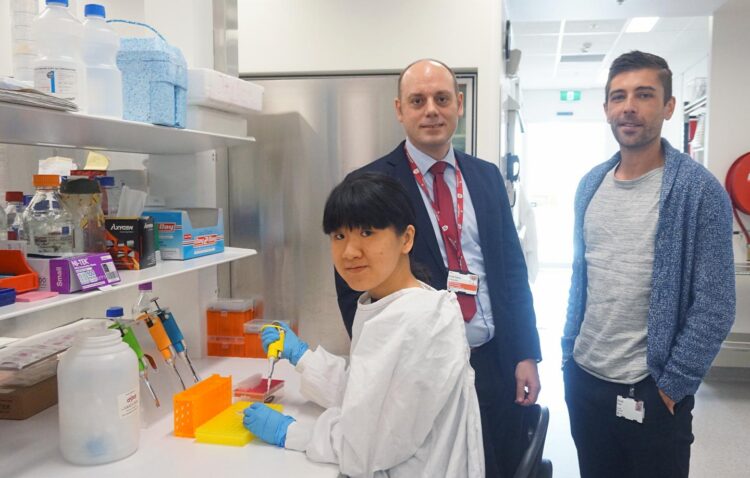
Credit: The Westmead Institute for Medical Research (WIMR)
For the first time, researchers at The Westmead Institute for Medical Research (WIMR) have identified and described a new and unique subset of human cells that are involved in the immune response against hepatitis B (HBV) infection. The discovery could help develop new treatments for HBV and inform future vaccine design.
Currently, HBV vaccination protects against subsequent infection through immunological memory – the vaccine ‘trains’ the immune system to eliminate pathogens when the body is exposed to the virus.
For years, immunological memory was thought to be driven by B and T immune cell responses. Recent studies in mice have suggested that natural killer (NK) cells can also ‘remember’ viral infections, but it remained unknown whether this applied to human viral infections.
Researchers from WIMR studied NK cells in humans who had been vaccinated against, or infected with HBV, and compared them to those who had not been exposed to the virus.
The study, undertaken by PhD student Ratna Wijaya and led by Professor Golo Ahlenstiel and Dr Scott Read, describes for the first time, the presence of memory NK cells (mNKs) in humans following exposure to HBV.
Professor Ahlenstiel said, “This finding is quite significant, as it helps our understanding of how the body fights against HBV following vaccination.
“Previously, we thought that the NK immune response was part of our ‘innate’ immune system. The innate immune system fights against all antigens (foreign bodies, such as viruses), rather than specifically targeting certain antigens. We have now confirmed that NK cells in humans can acquire an immunological ‘memory’, and specifically target HBV-infected cells in subsequent infections.”
HBV is a virus that attacks the liver. Although some individuals who are infected with HBV can eliminate the virus from their body, others, particularly those who are infected in childhood, may develop chronic infections.
“Vaccines have been vital in preventing the spread of HBV,” Professor Ahlenstiel said.
“However, not everyone who is vaccinated will experience the same level of protection. A percentage of those vaccinated – roughly five per cent – will not develop immunity against HBV. This means they can still develop an infection, including a chronic infection.
“Without proper treatment, chronic HBV can lead to serious complications, including liver cancer, and liver cirrhosis with chronic liver failure. It is vital that we prevent such infections where we can.
“We hope that, through our discovery, we can harness the anti-viral properties of mNKs to develop new treatments and improve vaccines so that everyone is protected against this virus.”
###
The research was published in Gut: https:/
Professor Golo Ahlenstiel and Dr Scott Read are affiliated with Storr Liver Centre at WIMR, WSLHD, Western Sydney University and the University of Sydney.
Ratna Wijaya is a PhD student supervised by Professor Golo Ahlenstiel and Dr Scott Read.
Media Contact
Alison Grinyer
[email protected]
Original Source
https:/
Related Journal Article
http://dx.





